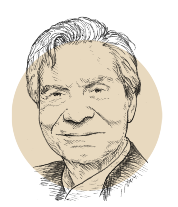Is American democracy really in danger since the attempt by Donald Trump’s followers to overturn the election of Joe Biden on January 6, 2021? Some on the left seem to think so. This assault on the Capitol, the precise meaning of which is still unclear and its instigators beyond our grasp, reminds me of a forgotten precedent in French history. On December 2, 1851, having been elected president in 1848 according to a constitution inspired by that of the United States (and influenced by Tocqueville), Louis-Napoléon Bonaparte proclaimed himself emperor on the model of his illustrious uncle rather than submitting himself to re-election. A handful of republican representatives tried to oppose the coup d’état by mobilizing the workers of Paris, who put up barricades – a tradition that endures still and was recently taken up by the Yellow Vest uprising. In fact, Parisian workers tended to be Bonapartists and accused the representatives of trying to protect their parliamentary stipend: 25 francs a day (the equivalent of 100 euros), while a worker’s salary rarely reached 5 francs. Alphonse Baudin, a representative from the Ain département, climbed onto a barricade and, flag in hand, threatening the soldiers facing him, proclaimed: “You’ll see what it’s like to die for 25 francs a day!” He was then killed by a bullet to the forehead. On the occasion of the centennial of the Revolution, in 1889, his coffin was transferred to the Pantheon where it now rests beside other heroes and heroines of French history, the latest being Josephine Baker, an anti-racist activist and member of the Resistance.
What matters for us today is Baudin’s challenge. What is the price of democracy, not for a representative but for society? Twenty-five francs? Democracy, which seemed to be a universally acknowledged ideal since the destruction of the Berlin Wall in 1989 and the Arab Spring of 2010-2012, is now in retreat everywhere. Examples include Russia: Boris Yeltsin was elected, yet Vladimir Putin now organizes phony elections; in the Arab world, the only nation that seemed to be moving into the democratic camp, Tunisia, is now sinking into a dictatorship; India, which has been an exemplary democracy since its independence, is now veering towards a theocracy with a prime minister deified by his partisans; in China, where the president is not subject to election, yet was supposed to leave power after a ten-year term, is returning to a Maoist-era cult of personality.
Meanwhile, in Africa, democratic movements are all fading away, aside from rare exceptions such as Zambia and Ghana. In Europe, leaders in Hungary and Poland are making moves to ensure that they never have to step down, destroying institutions on which every democracy is founded: independent judiciary systems and media. Leaders of the European Union are hardly reacting to abuses that should be cause for exclusion. And what of France? With a presidential campaign in full swing, certain troublemakers are hoping, if they are elected, to send French citizens back to their “countries of origin,” simply because they are Muslims. There is indignation, but no judicial condemnation of intentions that hark back to the Vichy regime. How is this political pandemic to be explained? Covid-19 is a contributing factor. States are expected to reconcile public health with the protection of individual freedoms, but this is not what we have seen. And the pandemic notwithstanding, contemporary culture invites us to expect the immediate satisfaction of all our wants. But democracy is the rule of the game, not a slot machine!
The American and French governments seem to be resigned to this decline, having given up on exporting democracy. Joe Biden has abandoned the Wilsonian principles of his own party, for which democracy should be a universal principle, and shows a preference for preserving the status quo as shown by his stance on Ukraine and the Middle East. As for France, the line laid down by Jacques Chirac in 2001 is being maintained; imposing our values on other civilizations is out of the question. This respect for difference might be praiseworthy if it did not verge on moral relativism.
What alternative might there be to democracy? More than a few entrepreneurs in the West consider the Chinese regime more effective. According to the businessman and former New York City mayor Michael Bloomberg, a spokesman for this thesis, the Chinese Communist Party serves consumers better than democracies. In his new book, Le premier XXIe siècle, Jean-Marie Guéhenno, once Under-Secretary-General for Peacekeeping Operations at the United Nations, imagines a world in which the control of citizens’ data would allow governments to deliver products and services required for their happiness. Based on this hypothesis, China, which keeps a file on all its inhabitants and incarcerates the recalcitrant, would be the incarnation of this future without a now superfluous democracy. But I doubt whether such despotism, informed by algorithms, could ever prevail over all the Alphonse Baudins. The Baudins of our day are Belorussian, Tunisian, Ukrainian, or residents of Hong Kong; they risk their lives to breathe the same air as we do, and die for less than 25 francs a day. Because we live in a democracy, we no longer know how to appreciate its purity.
Editorial published in the March 2022 issue of France-Amérique. Subscribe to the magazine.












